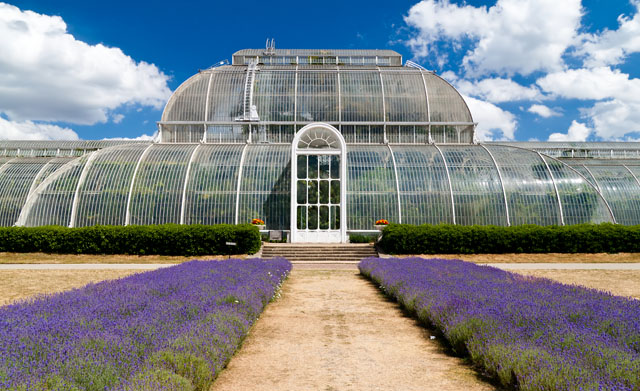An urgent plea for Kew Gardens
A World Heritage Site, and a national treasure, The Royal Botanic Gardens is in very real need of help.


The Royal Botanic Gardens, Kew, national treasure, global resource and World Heritage Site, faces a £1.5 million cut in its Government grant after April 2015. Comparable reductions over recent years have left the institution with a £5 million budget deficit and needing to make some 125 staff redundant, among them scientists, horticulturists and educators.
The public outcry has been great, but not nearly loud enough to echo Kew’s actual plight. Hearing it, one might imagine that this latest cut will ruin something that’s the envy of the world. But, in many respects, Kew has been losing its lead since the 1990s, overtaken by botanic gardens in the USA and Australia and now with newcomers in Asia hard on its heels. The problem is finance. In the early 1980s, when Kew was the world leader, 90% of its funding came from the government. Over the past three decades, that proportion has been halved. The big idea was that private donations would make up the rest, as sometimes happens in the USA.
Britons, however, are not so used to giving as Americans, or so tax-break incentivised, and especially where State institutions are concerned. Established to raise funds, the Kew Foundation has performed magnificently in attracting donors and in giving the gardens life-saving transfusions, but, at 17% of Kew’s income, not even a Defra mandarin could argue that its yield meets the shortfall.
At the same time as receiving less and less, Kew was giving more and more, from plant-derived medicines to a revolutionary DNA-based classification system. Valiantly, it kept up its conservation work, its custodianship of the world’s largest plant collections, its public amenity, its educational outreach and its duty of care to its historic buildings and landscapes, but budget cuts finally proved too deep. Now, as we need its expertise more than ever, Kew is barely able to maintain its present state, let alone return to past glory by meeting future challenges.
As a non-departmental public body, Kew exists for the nation and under Defra’s tutelage. The Government is legally required to ensure that it has sufficient funds to achieve its aims. Regardless of what we may donate, Ministers must fulfil that obligation or come to a very generous divorce settlement—a massive endowment and full operational freedom. The nation would, of course, be mad to let this treasure go, but that, in the worst possible sense, is what our elected representatives are doing already.
* This leader was first published in Country Life Magazine on September 10 2014
* Follow Country Life Magazine on Twitter
Sign up for the Country Life Newsletter
Exquisite houses, the beauty of Nature, and how to get the most from your life, straight to your inbox.
Country Life is unlike any other magazine: the only glossy weekly on the newsstand and the only magazine that has been guest-edited by HRH The King not once, but twice. It is a celebration of modern rural life and all its diverse joys and pleasures — that was first published in Queen Victoria's Diamond Jubilee year. Our eclectic mixture of witty and informative content — from the most up-to-date property news and commentary and a coveted glimpse inside some of the UK's best houses and gardens, to gardening, the arts and interior design, written by experts in their field — still cannot be found in print or online, anywhere else.
-
 'Monolithic, multi-layered and quite, quite magnificent. This was love at first bite': Tom Parker Bowles on his lifelong love affair with lasagne
'Monolithic, multi-layered and quite, quite magnificent. This was love at first bite': Tom Parker Bowles on his lifelong love affair with lasagneAn upwardly mobile spaghetti Bolognese, lasagne al forno, with oozing béchamel and layered meaty magnificence, is a bona fide comfort classic, declares Tom Parker Bowles.
By Tom Parker Bowles
-
 Country houses, cream teas and Baywatch: Country Life Quiz of the Day, April 24, 2025
Country houses, cream teas and Baywatch: Country Life Quiz of the Day, April 24, 2025Thursday's Quiz of the Day asks exactly how popular Baywatch became.
By Toby Keel